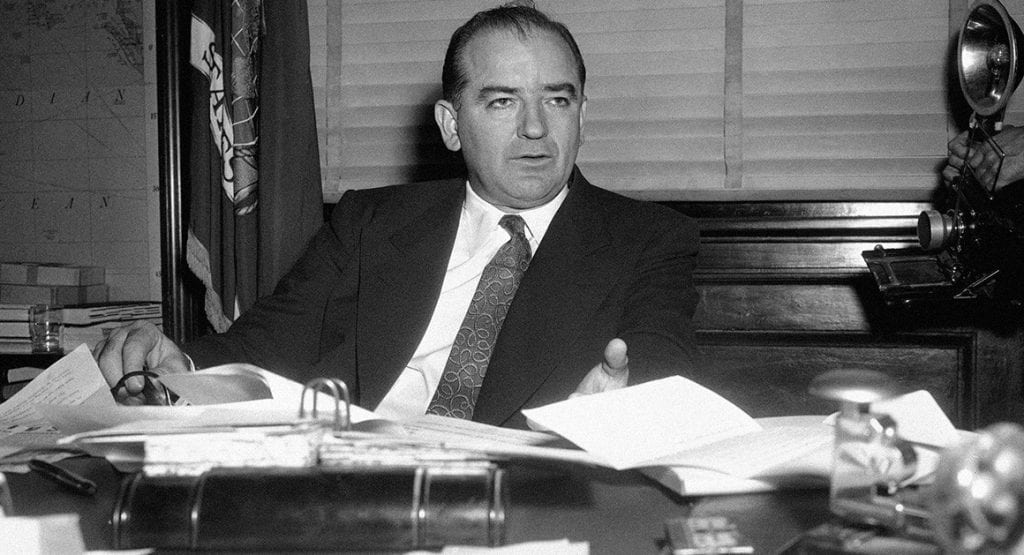For my second This Week I Learned post I want to talk about an interesting connection between Macbeth and the anti-communist movement of the 1950s. Specifically, the similar corruptions of both Macbeth and Senator Joseph Mccarthy. Both of these men became power-hungry by taking down the people around them, and it’s fascinating how well their stories line up.
Macbeth has been highly ambitious in the play so far, and it is starting to get out of hand. Where we are in the script, the end of act II, he has already killed King Duncan, two guards, and is plotting towards the murder of Banquo and his son. This spree of killing shows the complete corruption of Macbeth, as he no longer possesses a guilty conscience about his actions. This hunger for power is allowing himself to go against his own morals. As it is somewhat easy for him to kill now that he is without a bad conscience, he can’t stop himself and is becoming out of control and reckless.
This closely parallels the actions of a power-hungry senator in the 1950s. Joseph McCarthy, a Republican senator from Wisconsin, was rallying for voter support by calling people out as being supposed communists. He claimed that there were hundreds of communists working internally within the State Department and government. This provoked fear into citizens, as Soviet communism were enemy views as well as being un-American. He never provided any evidence of his claims, and eventually went too far when he accused the US army of communism coverups. This corruption of his voice shows the power he desires and the lengths he would go for it. His actions destroyed the reputation of countless figures within the US government. His actions show the power that ambition and desires have over a person.

For my artifact this week, I wanted to create a gif connecting Macbeth and Joseph McCarthy
Both Macbeth and McCarthy are examples of how power and conscience can corrupt individuals. When morals are removed, it’s easy for things to get out of hand. These strong actions evoke the desires within them to stay on top.

